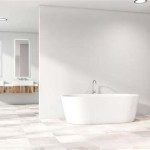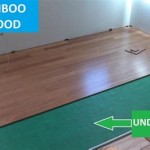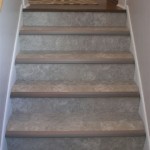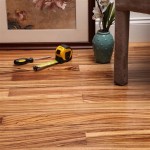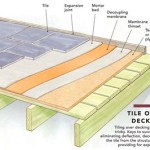Engineered Hardwood Flooring Vs Solid: Choosing the Right Option for Your Home
When embarking on a home renovation project, selecting the right flooring can be a daunting task, especially when faced with the decision between engineered hardwood flooring and solid hardwood flooring. Both options offer distinct advantages and disadvantages, making it crucial to understand the key differences to make an informed choice that best suits your needs and budget.
Engineered Hardwood Flooring: A Durable and Versatile Option
Engineered hardwood flooring consists of multiple layers, typically a core layer of plywood or high-density fiberboard, topped with a thin layer of real hardwood veneer. This construction method provides enhanced stability and durability, making it suitable for various applications, including areas prone to moisture fluctuations such as kitchens, bathrooms, and basements.
One of the primary advantages of engineered hardwood flooring is its dimensional stability. The multi-layered construction effectively mitigates the tendency of wood to expand and contract with changes in humidity. This stability makes it less prone to warping, cupping, and buckling, ensuring a consistent and long-lasting finish.
Moreover, engineered hardwood flooring is often available in a wider range of colors, finishes, and patterns compared to solid hardwood. This versatility allows homeowners to find a style that complements their existing décor and personal preferences. The availability of various wood species and textures further expands the design possibilities, enabling the creation of unique and customized flooring solutions.
Solid Hardwood Flooring: Timeless Elegance and Resurfacing Potential
Solid hardwood flooring, as the name suggests, is made from a single piece of solid wood. This traditional flooring option exudes timeless elegance and offers the possibility of resurfacing, making it a valuable investment that can be enjoyed for generations.
The primary advantage of solid hardwood flooring lies in its ability to be refinished multiple times. As the top layer of the wood wears down over time, it can be sanded and refinished to restore its original beauty. This feature allows homeowners to adapt their flooring to changing trends and styles throughout the years.
While solid hardwood offers a classic and elegant aesthetic, it is essential to consider its limitations. Solid hardwood is more susceptible to moisture variations, making it less suitable for areas prone to high humidity or water exposure. Additionally, solid hardwood flooring can be more expensive than engineered hardwood, especially for larger areas.
Key Considerations for Choosing the Right Flooring
When deciding between engineered hardwood flooring and solid hardwood flooring, several factors should be considered to ensure the best fit for your specific home and lifestyle.
1. Budget
Engineered hardwood flooring is generally more affordable than solid hardwood, particularly for larger areas. However, the price difference can vary depending on the wood species, finish, and installation costs. It's important to consider the long-term investment benefits of both options, including the potential for refinishing solid hardwood.
2. Installation Location
Engineered hardwood flooring is suitable for various locations, including basements, kitchens, and bathrooms, due to its dimensional stability. Solid hardwood, on the other hand, is best suited for areas with stable humidity levels, such as living rooms, bedrooms, and hallways. Assessing the potential for moisture exposure will help determine the optimal flooring type.
3. Desired Look and Finish
Both engineered hardwood and solid hardwood flooring can achieve a wide range of looks and finishes. Engineered hardwood offers greater versatility in terms of color, patterns, and textures, while solid hardwood provides a classic and elegant aesthetic. Consider your personal preferences and the desired overall style of your home when making your decision.
4. Maintenance and Durability
Both engineered hardwood and solid hardwood flooring offer excellent durability and longevity. However, engineered hardwood is generally more resistant to scratches and dents due to its multi-layered construction. Solid hardwood, while susceptible to scratches, can be refinished to restore its original appearance.
Ultimately, the choice between engineered hardwood flooring and solid hardwood flooring depends on a combination of factors, including budget, location, desired aesthetic, and lifestyle considerations. Carefully evaluating these factors will enable homeowners to make an informed decision that aligns with their specific needs and ensures a beautiful and durable flooring solution for their home.

Solid Vs Engineered Hardwood Which Is Better

Engineered Wood Vs Solid Which Is Better Flooring

Solid Vs Engineered Quality Hardwoods Superior Design Palo Duro

Engineered Wood Flooring Vs Solid Forté

The Difference Between Solid And Engineered Hardwood Flooring Westchester Ny Eagle Llc

Engineered Vs Solid Wood Flooring Main Differences Esb

Engineered Wood Flooring Vs Solid Hardwood

Engineered Wood Vs Solid Which Flooring Is Better

The Differences Between Solid And Engineered Hardwood Flooring Garrison Collection

Engineered Wood Flooring Vs Solid
See Also
